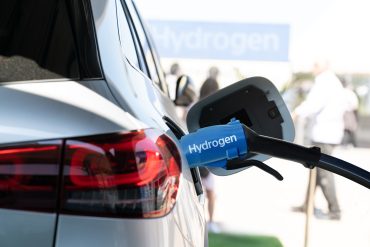
- Green Tech
Senate Cuts Hydrogen Tax Credit to 2028 After Vance Vote
5 minute read

Clean hydrogen tax credits accelerate project timelines as Senate sets 2028 deadline for $3-per-kilogram incentives
Key Takeaways
- Senate shortens hydrogen tax credit deadline to 2028 after Vice President JD Vance’s tie-breaking vote, cutting five years from the original 2033 expiration and requiring projects to begin construction by end of 2027 to qualify for up to $3/kg in credits.
- Narrow 51-50 vote highlights political division on clean energy incentives, with three Republican Senators opposing the measure despite GOP control, signaling ongoing legislative challenges for the hydrogen sector.
- Industry faces accelerated timeline pressure as companies must fast-track shovel-ready projects, potentially driving consolidation and supply chain strain while creating uncertainty for long-term investment planning.
Introduction
The U.S. hydrogen industry faces a compressed investment timeline after the Senate approved a 2028 deadline for the lucrative 45V hydrogen tax credit. The narrow legislative victory, secured by Vice President JD Vance’s tie-breaking vote, cuts five years from the original 2033 expiration date.
Republican Senators passed President Donald Trump’s budget bill despite opposition from three GOP members. The revised legislation requires hydrogen projects to begin construction before the end of 2027 to qualify for federal tax credits worth up to $3 per kilogram of low-emission hydrogen production.
Key Developments
The Senate’s 51-50 vote represents a compromise from earlier proposals that would have terminated eligibility as soon as January 2026. Industry advocates successfully lobbied for the extended deadline, though the final timeline remains significantly shorter than the original framework.
The legislation forms part of Trump’s “One Big Beautiful Bill” and now moves to reconciliation with the House version passed in May. Clean energy provisions faced intense scrutiny during negotiations, with early drafts including excise taxes on wind and solar projects that were ultimately removed from the final bill.
Renewable energy projects received similar treatment, with credit phase-outs accelerated to require construction starts by mid-2026 for credits available through 2027. The compressed timeline affects multiple clean technology sectors beyond hydrogen.
Market Impact
The shortened deadline creates immediate pressure on hydrogen project developers to advance shovel-ready initiatives. Companies must now demonstrate clear construction pathways within a four-year window, compared to the previous nine-year timeline.
The Department of Energy’s Regional Clean Hydrogen Hubs initiative faces potential commercial viability challenges. These federally supported projects rely heavily on 45V credits to attract private capital investment and achieve economic competitiveness.
Supply chain constraints are expected to intensify as multiple projects compete for limited resources including electrolyzers, renewable energy capacity, and specialized construction expertise. This compression may drive equipment costs higher across the sector.
Strategic Insights
The legislative outcome positions early-stage hydrogen companies at a disadvantage while benefiting developers with advanced project timelines. Firms with established partnerships and permitted sites gain competitive advantages in the race to qualify for federal incentives.
Merger and acquisition activity is likely to accelerate as companies seek to pool resources and expertise. Joint ventures between technology providers, energy companies, and infrastructure developers may become more common as firms attempt to meet accelerated deadlines.
The policy uncertainty introduces volatility that may redirect investment toward regions with more stable regulatory frameworks. International competitors with longer-term government support could gain advantages in the global clean hydrogen market.
Expert Opinions and Data
Frank Wolak, President and CEO of the Fuel Cell and Hydrogen Energy Association, acknowledged the extension provides opportunity to advance a “significant round” of projects to kickstart the US market. He noted that “very few” projects would have met the original 2026 cut-off proposal.
Shannon Angielski, President of the Clean Hydrogen Future Coalition, called the move a “major win” for US energy security and economic competitiveness. “We are deeply grateful to the Senators who recognised hydrogen’s role in meeting President Trump’s energy dominance agenda,” she stated.
According to Politico, the tax credit extension encourages businesses to adopt clean hydrogen alternatives while maintaining substantial federal support for early commercial deployment. Industry observers note the policy creates a definitive investment cliff that may discourage longer-term planning.
Conclusion
The Senate’s approval of the 2028 deadline creates a defined window for hydrogen industry development while introducing significant execution pressure. Companies must now balance accelerated project timelines against supply chain constraints and financing challenges.
The narrow vote margin underscores the politically charged environment surrounding clean energy incentives. Industry stakeholders continue advocating for policy stability to support the substantial capital investments required for large-scale energy transition projects.








